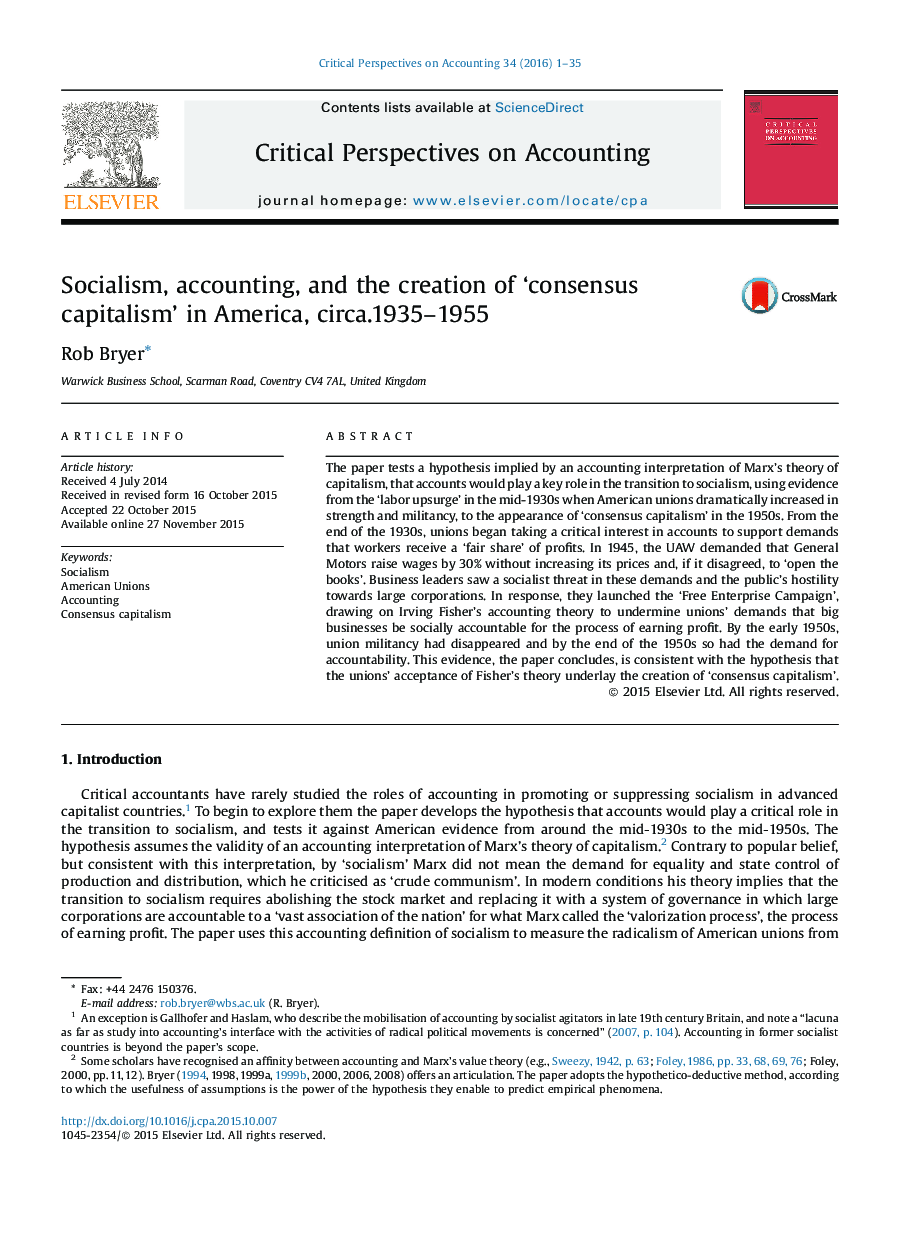| Article ID | Journal | Published Year | Pages | File Type |
|---|---|---|---|---|
| 999854 | Critical Perspectives on Accounting | 2016 | 35 Pages |
The paper tests a hypothesis implied by an accounting interpretation of Marx’s theory of capitalism, that accounts would play a key role in the transition to socialism, using evidence from the ‘labor upsurge’ in the mid-1930s when American unions dramatically increased in strength and militancy, to the appearance of ‘consensus capitalism’ in the 1950s. From the end of the 1930s, unions began taking a critical interest in accounts to support demands that workers receive a ‘fair share’ of profits. In 1945, the UAW demanded that General Motors raise wages by 30% without increasing its prices and, if it disagreed, to ‘open the books’. Business leaders saw a socialist threat in these demands and the public’s hostility towards large corporations. In response, they launched the ‘Free Enterprise Campaign’, drawing on Irving Fisher’s accounting theory to undermine unions’ demands that big businesses be socially accountable for the process of earning profit. By the early 1950s, union militancy had disappeared and by the end of the 1950s so had the demand for accountability. This evidence, the paper concludes, is consistent with the hypothesis that the unions’ acceptance of Fisher’s theory underlay the creation of ‘consensus capitalism’.
